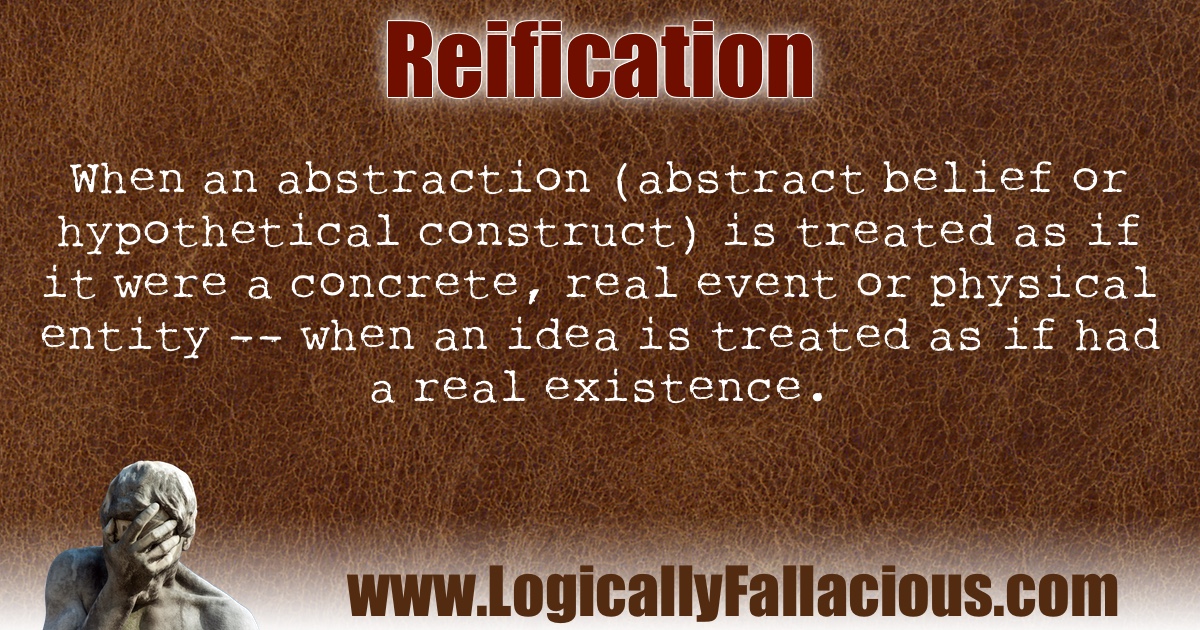(also known as: abstraction, concretism, fallacy of misplaced concreteness, hypostatisation, pathetic fallacy [form of])
Description: When an abstraction (abstract belief or hypothetical construct) is treated as if it were a concrete, real event or physical entity -- when an idea is treated as if had a real existence.
Logical Form:
Abstraction X is treated as if it were concrete, a real event, or a physical entity.
Because the abstraction is seen as if it were concrete, a real event, or a physical entity, the conclusion is true.
Example #1:
Dr. Simmons: I am working on a way to lengthen the human lifespan to about 200 years.
Misty: You are declaring war on Mother Nature, and Mother Nature always wins!
Explanation: Here, “Mother Nature” is being portrayed as an autonomous being capable of going to war with humanity. If this were the case, it would seem that messing with Mother Nature is futile. In reality, we are part of nature and can and always have changed nature, sometimes for the worse, but often for the better.
Example #2:
If you are open to it, love will find you.
Explanation: Love is an abstraction, not a little fat flying baby with a bow and arrow that searches for victims. Cute sayings such as this one can serve as bad advice for people who would otherwise make an effort to find a romantic partner, but choose not to, believing that this "love entity" is busy searching for his or her ideal mate.
Exception: In most cases, even in the above examples, these are used as rhetorical devices. When the reification is deliberate and harmless, and not used as evidence to support a claim or conclusion, then it is not fallacious.
It’s time to grab my future by the balls.
The future is an abstraction. It does not have testicles. If it did, you probably wouldn’t want to grab them because your future might sue you for sexual misconduct.
Variation: The pathetic fallacy is the treatment of inanimate objects as if they had human feelings, thought, or sensations. Think of cursing at your computer when it does not give you the results you expect.
Fun Fact: Reification is similar to anthropomorphism, except that reification does not have to deal with human qualities.
